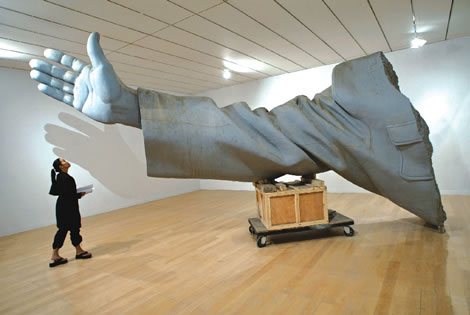Why Europe Needs a Hard Power Reality Check
Europeans are hoping a new European Union treaty will help raise their profile in international affairs. This is unlikely to happen anytime soon.
Why Europe Needs a Hard Power Reality Check
Soeren Kern | Strategic Studies Group | October 17, 2007
Europeans are hoping a new European Union treaty will help raise their profile in international affairs. But unless European elites bring their postmodern fantasies about the illegitimacy of military “hard power” into line with the way the rest of the world interprets reality, Europe is unlikely to have much of a global voice at all.
Indeed, after years of overselling the efficacy of diplomatic and economic “soft power” as the elixir for the world’s problems, Europeans have been left wanting, both at home and abroad.
Most Europeans will admit that their halfhearted performance in Afghanistan has been less than spectacular, even embarrassing in the case of Spain. And in Lebanon, the European-led United Nations peacekeeping mission that was to have cemented Europe’s role as an impartial actor in the Middle East is now the main protector of the Hezbollah militias it was sent to monitor.
Three years of European soft power diplomacy has not persuaded Iran to abandon what Europeans admit is a clandestine nuclear-weapons program. If anything, Iran has been emboldened by European equivocation. At the same time, China and Russia, expert practitioners of power politics, continue to pursue aggressive trade and energy policies vis-à-vis Europe with evident impunity.
Meanwhile, the European effort to construct an anti-hegemonic coalition to counter-balance American power seems to have been swept into the dustbin of history. Four years ago, what short-sighted Europeans feared most was a swift American military victory in Iraq that would magnify the preponderance of US power and influence on the world stage. But the American humiliation in Iraq deflated Europe’s bipolar ambitions.
Now the future of the entire Middle East is at stake, and Europeans have no meaningful role in the process. Initiatives by European policy analysts to provide America with advice on Iraq, however well-intentioned, are certain to ring hollow in Washington.
Some Europeans are hoping that the next American president will adopt a more post-modern European perception of reality. But doing so would be a big mistake—American elites of all political stripes understand the vital role that “hard power” plays in securing US strategic interests. Many of them are also growing impatient with Europe’s inability or unwillingness to follow through on even the most basic of its transatlantic commitments. Listen to US presidential candidates talk about foreign policy, and one hears hardly a word about Europe. For them, the future is with Asia.
Everyone knows that Europe cannot guarantee its own security, much less guarantee the security of others. The United States will continue to be the main guarantor of European security for well into the foreseeable future, even if reflexively anti-American European elites wish it were not so. By pretending that Europe can go it alone, Europeans are damaging their credibility, and not just in the eyes of Americans.
It is time for Europeans to realign their ambitions with reality. A good first step would be to acknowledge that the ability to back up “soft power” with the credible threat of “hard power” still makes a very big difference in a world where nation-states remain as strong as ever.
The leaders of France and Germany, the two countries on the European mainland that factor most in the American strategic calculus, appear to be moving in this direction. They also seem to recognize that European “soft power” detached from America’s “hard power” is not enough for a Europe to maintain (much less increase) its global influence.
As committed Atlanticists have been saying all along, a strong America and a strong transatlantic relationship will increase—not decrease—Europe’s position on the global stage. And when that happens, both Europeans and Americans are set to win.
Soeren Kern is Senior Fellow for Transatlantic Relations at the Madrid-based Grupo de Estudios Estratégicos / Strategic Studies Group
Originally published in Atlantic Community Policy Workshop




